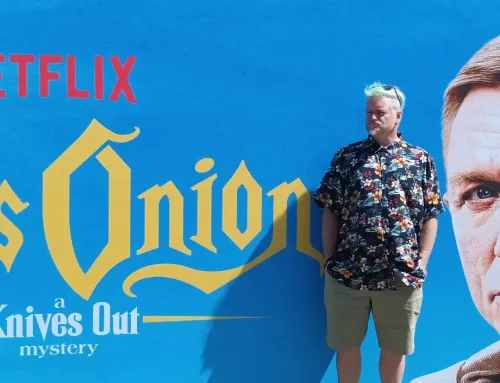this is not going to be a blog post as much as it is going to be an invitation to a comments forum where you can jump in and share your thoughts on any aspect of race – good, bad and ugly…
when you think of race, what comes to mind – can be happy, sad, confusing, angry, celebratory… but keep it civil – am good with questions and statements and stories but not overt racism…
let’s see how this goes and if it works well i will keep it up… so responses to other blog posts that have been happening, invitations for blog posts you would like to see, questions you would like to ask someone of a different race, experiences you have had.
what do you have to share?




![The Road to the Catan World Champs in Malta 2022! [Part II]](https://brettfish.co.za/wp-content/uploads/2022/11/IMG_9944-scaled-e1669831201283-500x383.jpg)
![The Road to the Catan World Champs in Malta 2022! [Part I]](https://brettfish.co.za/wp-content/uploads/2022/11/catanchampionships-500x383.jpg)
[…] or suggestions or thoughts on any aspect of this Race conversation, i have created a little place over here for you to come and have your say if you would […]
[…] or suggestions or thoughts on any aspect of this Race conversation, i have created a little place over here for you to come and have your say if you would […]
In response to http://brettfish.wordpress.com/2014/04/16/taboo-topics-race-what-i-would-love-my-white-friends-to-hear-meet-tshego-motiang/:
Hey Tshego, I really enjoyed your post, and your mature, open attitude to difficult topics. I totally agree that talking to someone who has offended you could be really helpful – especially if they don’t realise they’ve done so. And kind, non-defensive, open communication is alway the best solution! You sound like you have an awesome way of seeing the world and others.
I have two questions that are more for general debate (if B doesn’t mind my super-long comment:) – perhaps others can chime in too.
1) Is it the job of black people to ‘educate’ other people about how to treat them? Is it your responsibility? Wouldn’t it be tiring/ difficult/ embarrassing to have to point out every time someone offends you? I know if someone says something offensive to me I’m often too paralysed with shock/ hurt to react… and then the moment is over and the person has left but I’m still left feeling horrible.
Shouldn’t white people (or whoever is being racist/ offensive) make the effort to become more aware and sensitive themselves? I’m just concerned that saying it’s black people’s “job” to educate others puts the ball too much in the court of those who are hurt by insensitive remarks or behaviour, and doesn’t keep the ‘offender’ (for want of a better word) accountable.
2) Are there perhaps some black people who are not empowered to speak up against racism? (As there are some women in patriarchal societies who are not empowered to speak up against sexism.) For instance, they might be scared of authority (the government, their boss etc.) or simply not have the confidence or strength to do so, for whatever reason?
You asked the rhetorical question “Why not respond?” to racism. What I’m suggesting is that these may be some of the reasons why people don’t or can’t respond – and that they shouldn’t be held accountable for that.
But if you are confident/ comfortable enough/ prepared to correct the offender or raise awareness about racial sensitivity, as these posts have been doing, I think it is very helpful.
I’m also worried that you maybe deny some people their very real anger and hurt (by saying that “there is no point in getting angry”). I know that anger can be destructive, but I also think it has its place, and has to be acknowledged before healing can begin. It can even be a helpful start to an honest conversation: “I am really angry with you – can I explain why?”
This is not at all a dismissal or repudiation of anything you’ve said – all of which is your personal story and perspective and which I totally respect – it’s more an addendum and a sidenote and a debate around your very valid thoughts.
* Of course I am not the offended person in question here and do not presume to speak on anyone’s behalf (I am white and have not experienced racism), just raising the point and presenting it for Tshego or others to comment on, as I think this is a really important conversation.
Hey Andrea. Thanks for reading the post and thanks for the questions. I find it intriguing that you would ask those questions because after sharing the post, a friend of mine and I got into an interestingly heated debate about those two thoughts, specifically your first question and this is where I stand with that…
1. I totally agree with you (and my friend too as he was making the same point)… it should not be left to one side to be the educator… there should be some effort from the other side to want to learn as well.
I have witnessed and experienced scenarios where insensitive comments where made (whether intentional or not) and the response was outburst and definsiveness. And even though it hurts and can be damaging, I have come to realise that understanding can be achieved through educating – if we just stopped for a second, despite our anger and offense, and took the time to explain why it’s not ok to say certain things and why it hurts, people would very quickly stop making “throw away” remarks/jokes and start thinking about what their about to say. This would eventually open up the doors for inquisitiveness. It’s not easy but once those doors have opened, the eggshells disappear and a relationship begins to flourish and that’s ultimately where you wanna be.
At the same time I have also witnessed scenarios where people have been genuinely curious and inquisitive and were unfortunately met with the same outburst and defensiveness making the conversation impossible which then ultimately leads to loads of frustration. And so the vicious cycle continues. We need to be brave enough to allow people to ask questions so they can gain that knowledge and understanding.
And that’s why I mentioned in my post that we should not only be willing to explain why something hurts but also allow room for people to be inquisitive. I didn’t say it in so many words and so it didn’t really come across as such but that’s basically what I was trying to say.
2. You will notice that when I said “there is no point in getting angry” in my post, I coupled it with “and holding grudges”. Of course you’re gonna get angry… of course what is said it going to get you upset and worked up and rightly so, you’re being discriminated against, that’s not something anybody can take lightly and it shouldn’t be taken lightly! So, get angry, let them know that what has been said angers you but then explain why. It can be a tricky exercise but if we let our emotions take over, there will never be an oppotunity for people to learn.
I have a friend who recently made a comment that I didn’t like. Because of our friendship I didn’t get angry about it but I was irritated and annoyed. I very openly explained why the comment was hurtful and offensive to me, unfortunately he failed to understand why it was offensive to me and that’s what frustrated me most! Nevertheless, he finally agreed to drop the topic altogether and even though he didn’t get why it irritated me, he respected me enough to realise that it upset me.
3. Speaking out against discrimination is not always easy… I don’t how you get someone to stand up for themselves when it comes to that, I truly wish I did… I was there too, too scared to speak out but I have an incredible friend who has encouraged me to embrace who I am and not let anyone bring me down for it and that gave me the courage I needed to stand against it. It’s easier said than done but that’s how I managed to deal with it. I can’t say it’ll work for everyone but it worked for. I do agree with you though confidence is definitely necessary to do something like that.
Thanks again for the questions. You definitely got me thinking on a different level… I like 🙂
Thanks so much for taking the time in response. I do feel like this conversation can be so vital if we allow it to be and if more people engage. If you can get people who you are having these other conversations with to come and read the posts and possibly comment of write their own that will be amazing. Rock on!